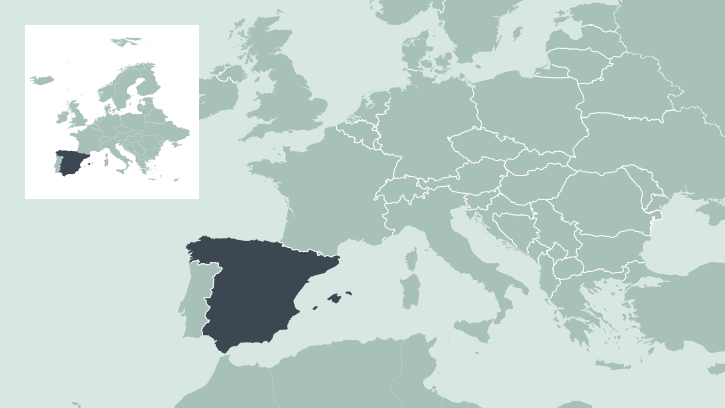
Spain
- Contracting State since
- 1986.01.10
- Lastly updated
- 2022.02.17

Contact for consular services
- German Embassy
-
Bilateral relations and German missions
Authorities responsible for issuing export permits
Applications may be made to
to the self-governing regions, which have their own evaluation committees, for properties in their territory
otherwise directly to the Junta de Calificación, Valoración y Exportación de Bienes del Patrimonio Histórico Español.
Applications for the export licences can also be submitted electronically via the website of the Ministry of Culture. Applications can be made for permanent export, temporary export, and temporary export of cultural heritage.
Subdirectorate General for the Protection of Historical HeritageGeneral Directorate of Fine Arts and Cultural Assets and Archives and LibrariesMinistry of Education, Culture and Sports
Plaza del Rey, 1
Madrid
Spain
Procedure
-
Costs are incurred for permanent and temporary export licences with a put option to countries outside the EU. The amount of duty charged depends on the value stated in the export application or the purchase price obtained (in the case of a temporary export licence with an option to sell). The following rates apply, to be applied individually to each object:
o on the first up to €6,000: 5%.
o from € 6,001 to € 60,000: 10%.
o from 60,001 to 600,000 €: 20%.
o from 600,001 €: 30%.
- Duration
- Three months from application
- Costs
- see the information above
Further Information
Detailed information on the regulations governing the export of cultural property from Spain can be found on the website of the Spanish Ministry of Culture ebsite des spanischen Kulturministeriums (Spanish).
Further Information is available in German language.
Disclaimer
The above information is based on the information available and deemed trustworthy at the time indicated, in particular the information provided by the State and the information as available in the UNESCO database. No guarantee can be given for the correctness and completeness of this information, nor can any liability be accepted for any damage that may occur. Legal regulations may change at any time without the Federal Government Commissioner for Culture and the Media being informed. The decision to acquire, import, export or place cultural property on the market is your sole responsibility. It is therefore recommended that you contact the relevant diplomatic or consular representation and/or the export authorities of the respective foreign country.

